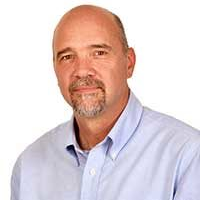
Families & Addiction – Part 6: Tips for the Family
For the family system to change, there has to be a precedent of honesty created.
To do so, the people in that system need to learn how to communicate differently. They have to learn to be honest with one another.
With addiction, the secret-keeping that is inherent in the addiction is a huge thing to overcome. The person who is working to break free from addiction has to break that habit of dishonesty.
We often see in treatment that they are willing to do so because they are worn out and don’t want to keep up the charades.
We also see, however, that the family members often have a difficult time being honest, themselves, with how they were feeling when the person was struggling as well as with describing how they are feeling towards one another.
The first thing I do during the first family session is to ask “when this person was struggling the most, how did you experience it? What feelings were coming up for you? What was it like to watch this person experience the struggles that they experienced?”
I would say that 80% of the time when the family members begin to describe how they felt and what they thought, it is new information for the person who was struggling because the family members so often have kept those feelings and thoughts to themselves.
Once everyone is honest with one another, it facilitates a much better chance of recovery.
The family needs to learn to be open with one another. If anyone has ever looked at the Johari window, the concept is that the more I open up with people, the more help I will get.
If we open up with one another, we gain a better understanding of what we’re thinking and feeling, and especially in a family where there is a need to recover, the idea of being able to be open and honest with one another can be very helpful.
The last thing is to be willing to change. This is the biggest thing.
Looking back at Charlie’s family, look at his father Henry, for example.
It might be difficult for Henry to change because he is carrying a lot of pain from his childhood with him in the fact that his dad was an alcoholic and abusive toward him. This might be something that challenges Harry.
However, if there is a willingness for the family system to change and for each individual in the system to change, the outcome tends to be better.
A part of this willingness to change is for the family to be willing to let go of any control.
 The individual needs to remember that they are not their addiction, but the family members also need to remember that this person is not their addiction.
The individual needs to remember that they are not their addiction, but the family members also need to remember that this person is not their addiction.
Letting go of this control means acknowledging that, if this person doesn’t choose to recover, we can’t make them recover. No one can make anyone do anything. The family has to come to grips with that, and we have to help them do so.
I have found that a controlling family system is often a source of relapse because it creates a profound source of invalidation and weakness. The individual may start to believe, “I am not strong enough to make these decisions on my own.”
The family can also support an individual recovering from addiction by validating them instead of trying to “fix” them.
I have met with families where the addicted individual is being open and honest and will tell their parent, “Mom, Dad, I am very afraid, and I'm really anxious,” and the first thing that comes out of Mom and Dad's mouth is “well, did you try to do this?” or “did you try to do that?” or “you shouldn't be anxious, you don't have anything to be anxious about.”
A lot of this is about trying to fix the feelings that the recovering individual is having, but it is much better to simply validate and not to feel like you have the responsibility to fix anybody.
Validation may sound like, “wow, I can see and am hearing that you are anxious and that you are struggling with some fears, that must be really hard. I just want you to know that I’m here. Is there anything you need me to do to help you right now?”
“Ask Don't Tell” is another principle of support where a person may express that they are having a lot of anxiety or feeling the urge to go out and drink.
Very often, the statements start coming forth, “did you call your sponsor, are you doing your distress tolerance?” instead of simply asking the person, “I hear you are struggling, is there anything I can do?”
 This gives that person a sense of empowerment in being able to say yes or no and then avoid giving it to us.
This gives that person a sense of empowerment in being able to say yes or no and then avoid giving it to us.
Often, advice-giving comes across as “you don't know what you need, I know what you need, this is what you should do.”
As such, advice-giving often is not as helpful as simply being there and validating and asking, “what can I do to help?”
Another question it is important to discuss is, when do you know that it might be time to help that person get back into treatment?
If the conversations have begun to be more open and honest, then very often it makes it a little bit easier but that individual may continue to struggle with that addiction and may continue to try to cope with life by using.
Then we have to come to that place where we intervene in some way, shape, or form.
I think the key to doing so is to set really good boundaries, to stop enabling the individual, and to use this to get them back into treatment.
Looking at Charlie’s family, or any family struggling, my hope is that each of them will address some of the personal needs that they have and that they will become very supportive of their loved one in their process of recovering from addiction.
Please See
Families and Addiction – Part 1: What is a Family System?
Families and Addiction – Part 2: Charlie’s Family – Part 1
Families and Addiction – Part 3: Charlie’s Family – Part 2
Families and Addiction – Part 4: The Family Recovery Journey – Part 1
Families and Addiction – Part 5: The Family Recovery Journey – Part 2
Source:
Virtual Presentation by Steve Wright, LCPC, RDDP in the January 24, 2018 Addiction Hope Inaugural Online Conference & link to the press release at https://www.prnewswire.com/news-releases/eating-disorder-hope-offers-inaugural-online-conference-300550890.html
 About the Presenter:
About the Presenter:
Steve Wright, LCPC, RDDP is a therapist at Timberline Knolls Residential Treatment Center. He served for more than 25 years as a minister working in churches with youth, families, and as a senior pastor. As a counselor, he worked in residential treatment as a therapist supervisor, coordinator, and program director first in the substance use field and then in the eating disorder field.
 About the Transcript Editor: Margot Rittenhouse is a therapist who is passionate about providing mental health support to all in need and has worked with clients with substance abuse issues, eating disorders, domestic violence victims, and offenders, and severely mentally ill youth.
About the Transcript Editor: Margot Rittenhouse is a therapist who is passionate about providing mental health support to all in need and has worked with clients with substance abuse issues, eating disorders, domestic violence victims, and offenders, and severely mentally ill youth.
As a freelance writer for Eating Disorder and Addiction Hope and a mentor with MentorConnect, Margot is a passionate eating disorder advocate, committed to de-stigmatizing these illnesses while showing support for those struggling through mentoring, writing, and volunteering. Margot has a Master’s of Science in Clinical Mental Health Counseling from Johns Hopkins University.
The opinions and views of our guest contributors are shared to provide a broad perspective of addictions. These are not necessarily the views of Addiction Hope, but an effort to offer discussion of various issues by different concerned individuals.
We at Addiction Hope understand that addictions result from a combination of environmental and genetic factors. If you or a loved one are suffering from an addiction, please know that there is hope for you, and seek immediate professional help.
Published on June 22, 2018
Reviewed on June 22, 2018 by Jacquelyn Ekern, MS, LPC
Published on AddictionHope.com
